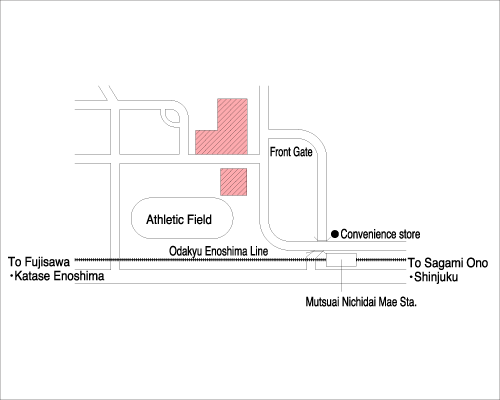Graduate School of Bioresource Sciences
Major
- Bioresource Production Sciences
- Bioresource Utilization Sciences
- Applied Life Sciences
- Natural Environment Studies
- Bioresource Economics
When the former Graduate School of Agriculture was restructured in April 2000 to form the Graduate School of Bioresource Sciences, we separated the graduate school specializations from the various departments of the College of Bioresource Sciences, and instead created purpose-specific research fields for the production and utilization of bioresources, life sciences, environmental sciences, and bioresource economics (with a stronger social component).
The Graduate School of Bioresource Sciences offers 5 organically integrated specializations: Bioresource Production Sciences, Bioresource Utilization Sciences, Applied Life Sciences, Natural Environment Studies, and Bioresource Economics.
Bioresource Production Sciences studies all kinds of problems related to biological production in a comprehensive way with a view to both bioresources and the environment, and aims to research and develop new methods for sustainable but efficient biological production management. Bioresource Utilization Sciences comprehensively studies all kinds of problems related to bioresource utilization from a global environmental perspective, and aims to research and develop new methods for efficient bioresource utilization. Applied Life Sciences uses bio-engineering methods to research the development and application of the functions of existing organisms and life forms in order to create new, environmentally sound bioresources. Natural Environment Studies researches ways for all living things to co-exist, and aims to develop methods and technologies for stable and perpetual protection and utilization of bioresources. Bioresource Economics, finally, studies domestic and international problems related to bioresources, in particular food production, distribution and consumption, in order to develop sustainable and environmentally favorable bioresource production policies and distribution systems. In 2002, our Applied Life Sciences research field was selected as a “21st Century COE Program,” and we have great hopes for its future development.
Access and Contact
College of Bioresource Sciences
Graduate School of Bioresource Sciences
Graduate School of Veterinary Medicine
Junior College (Department of Bioresource Sciences)
1866, Kameino, Fujisawa-shi, Kanagawa 252-8510
- JR Tokaido Line: From Tokyo Station; Change trains at Fujisawa Station (50 min.) to Odakyu Enoshima Line (take local train only); Get off at Mutsuai Nichidai Mae Station (9 min.); 3 min. on foot
- Odakyu Line: From Shinjuku Station; Change trains at Sagami Ono Station (40 min. by Odawara Line Express) to Odakyu Enoshima Line (take local train only); Get off at Mutsuai Nichidai Mae Station (25 min.); 3 min. on foot
- Tokyu Denentoshi Line: From Shibuya Station; Change trains at Chuo Rinkan Station (36 min. by Tokyu Denentoshi Line Express) to Odakyu Enoshima Line (take local train only); Get off at Mutsuai Nichidai Mae Station (19 min.); 3 min. on foot






